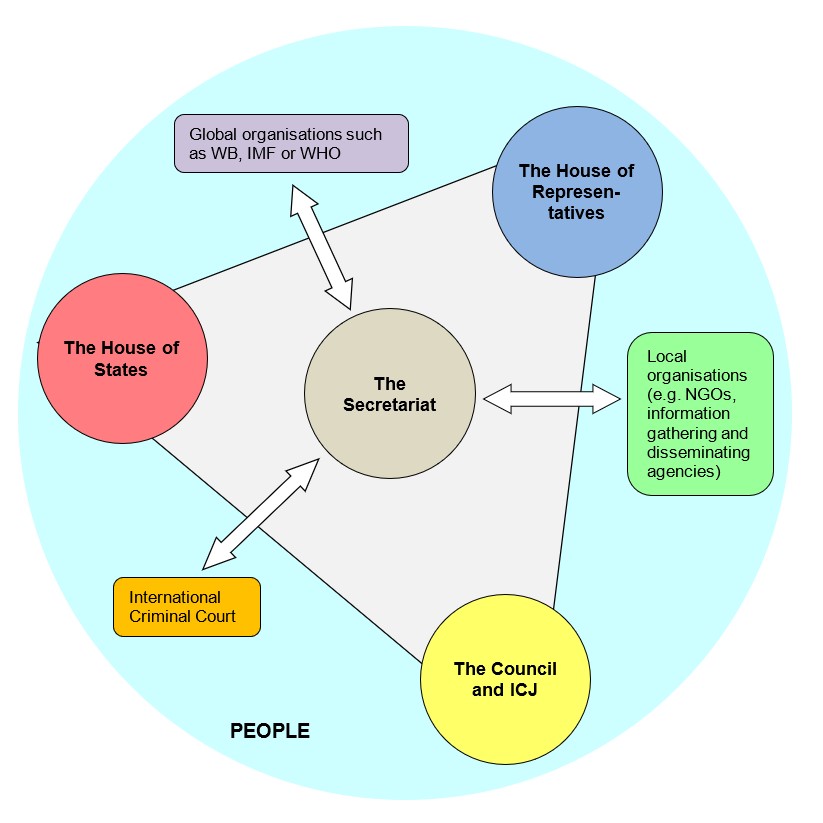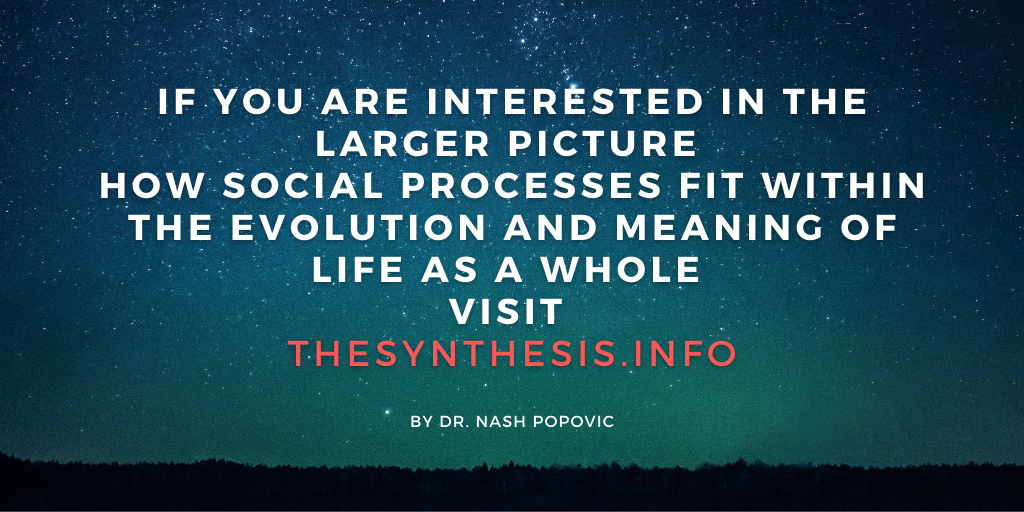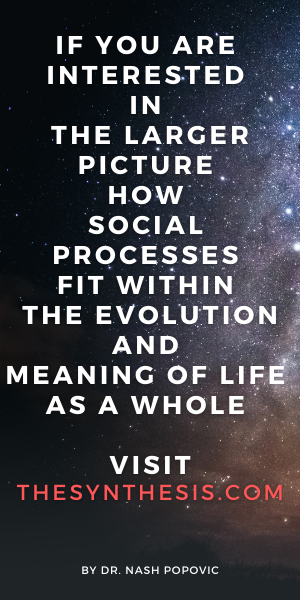Another crucial player in global governance needs to be considered – the people themselves. The public would be indispensable for informing the chambers about the situation on the ground, making suggestions and proposals about global challenges, and supporting, as well as challenging if necessary, the upholding of common goals, values and principles. Grass-roots involvement can be extremely valuable and could contribute to political maturity globally. Reversely, people’s disengagement can easily turn into hostility. Voting once in a few years is not enough, and more needs to be on offer in order to engage ordinary people. It is hard, however, to conceive utilising the usual channels of direct democracy on this scale for several reasons: they would be far too slow (although this may change in the future with widespread online access); they would be open to corruption and abuse on a large scale as monitoring across the globe would be difficult and expensive (e.g. in the case of a global referendum); and vast demographic differences (e.g. between rich and poor parts of the world) would create many distortions and potentially contribute to hostility rather than cooperation between groups. Ideally, the role of direct democracy should gradually increase until it reaches the same level as suggested at the nation-state level, but this may take some time. This is not to say that some elements of direct democracy cannot be included from the start and engage with many worthwhile grass-roots initiatives happening throughout the world. What is needed is the creation of accessible channels of communication with the global institutions. Here are some suggestions for how this can be achieved:
- Establishing an online platform where people can express their views on the present course of action and even informally vote for various options. There are already a number of websites that do something similar, but it would be important to create an official one for the sake of visibility and credibility. Organised responses by, for example, corporate or governments’ cyber agencies would have to be fought against as other online platforms (e.g. those for petitions) have to do. This may, though, not be enough, so the purpose of such a platform would only be to measure roughly the pulse of global sentiment. Such ‘world opinion’ would not be binding, but it could still have some real impact (as it has in some cases already).
- Providing opportunities for the general public to make proposals and suggestions for important global issues (e.g. what to do about the climate change, population increases, education and health, international crime and many other subjects). An agency adjoined to the Secretariat could initially vet any suggestions. Then, the Secretariat could choose to which chambers those proposals worthy of consideration should be passed for further deliberation. Tapping into this creative potential could be hugely beneficial. There are many individuals and groups that have great ideas, knowledge and experience in a particular field but do not have any way of channelling them to those who are in a position to implement them.
If you are also interested in personal development that can help you make some evolutionary changes in your own life please visit personalsynthesis.com
- NGOs are another form of grass-roots involvement and some already have their place within UN agencies and elsewhere. Maintaining this relationship would be beneficial for all. There have been some high-profile cases involving NGOs, but they represent a very small proportion of their number. Most are doing great work and even some of those hit by scandals continue to do so.
- Encouraging the formation of global grass-root interest groups (such as students, farmers, health professionals, or environmentalists). Such bottom-up interconnectivity can contribute to forming global identity far better than top-down decrees. Providing opportunities for such groups to attend relevant meetings, make their case, and suggest a way forward would contribute to establishing constructive relationships with them. The UN is already making strides in this direction.
- Modern technology is still a largely underutilised means of communication that could greatly help engage the general public. For example, a so-called Padget (a portmanteau coined from ‘Policy Gadget’) toolset can be used to gather feedback and promote the debate.
We outlined above the major elements of the model. This is its visual representation:



